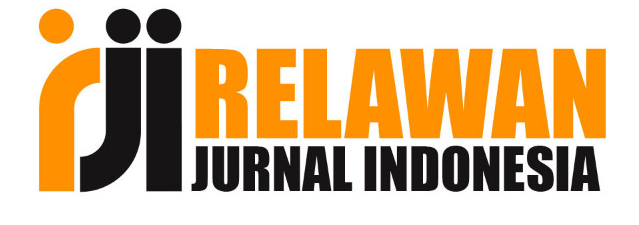Critical Thinking In Elt: How Cooperative Learning Affects The Efl Learners’ Critical Thinking Aspects
DOI:
https://doi.org/10.36982/jge.v7i2.579Abstract
Abstract
This research attempted to see whether the cooperative leaning was impactful on EFL learners’ critical thinking aspects. Non-equivalent pretest and posttest control group design of comparison group design was used in this research. The population of the research was all of the undergraduate students of University of Indo Global Mandiri. Forty students were selected as the sample purposively in the experimental group (treatment group) and control group (non-treatment group), respectively. A critical thinking rubric was employed to measure the EFL learners’ critical thinking(aspects) and critical thinking aspects(total). The research findings revealed that (1) there was a significant improvement on the EFL learners’ critical thinking(aspects) and critical thinking (total), (2) There was a significant mean difference on the EFL learners’ critical thinking(aspects) and critical thinking aspects(total), (3) there was a significant contribution of the critical thinking skill (aspects) and critical thinking aspects(total) in which the aspects of framing personal responses and acknowledging other perspectives had the lowest contribution and the aspects of recoqnizing stakeholders and context had the highest contribution. In conclusion statistically the cooperative learning was significantly impactful on the EFL learners’ critical thinking aspects in English language teaching.
Keywords: Cooperative learning, critical thinking aspects
AbstrakÂ
Penelitian ini berusaha untuk melihat apakah pembelajaran kooperatif berdampak pada aspek berpikir kritis peserta didik EFL. Penelitian ini menggunakan desain penelitian non-equivalent pretest and posttest control group design of comparison group design. Populasi dari penelitian ini adalah semua mahasiswa sarjana dari Universitas Indo Global Mandiri. Empat puluh siswa dipilih sebagai sampel secara purposif dalam kelompok eksperimen (kelompok perlakuan) dan kelompok kontrol (kelompok non-perlakuan). Rubrik berpikir kritis digunakan untuk mengukur pemikiran kritis (aspek) pembelajar EFL dan aspek berpikir kritis (total). Temuan penelitian mengungkapkan bahwa (1) ada peningkatan yang signifikan pada pemikiran kritis (aspek) peserta didik EFL dan pemikiran kritis (total), (2) Ada perbedaan rata-rata yang signifikan pada pemikiran kritis peserta didik EFL (aspek) dan aspek berpikir kritis (total), (3) ada kontribusi signifikan dari keterampilan berpikir kritis (aspek) dan aspek berpikir kritis (total) di mana aspek membingkai tanggapan pribadi dan mengakui perspektif lain memiliki kontribusi terendah dan aspek dari para pemangku kepentingan dan konteks yang memiliki kontribusi tertinggi. Kesimpulannya secara statistik pembelajaran kooperatif berdampak signifikan pada aspek berpikir kritis peserta didik EFL dalam pengajaran bahasa Inggris.
Kata kunci: pembelajaran kooperatif, aspek berpikir kritisReferences
Alessi, Stephen, Trollip, & Stanley R. 2001. Multimedia for learning. New York: Allyn and Bacon
Abdu-Raheem, B. O. 2011. Effects of discussion method on secondary school students’ achievement and retention in social studies. European Journal of Educational Studies, 3(2), 293-301.
Al -Hosni,S. 2014. Speaking difficulties encountered by young EFL learners. International Journal on Studies in English Language and Literature (IJSELL), 2(6), 22-30
Al-Jamal, D. A., & Al-Jamal, G. A. 2013. An investigation of the difficulties faced by efl undergraduates in speaking skills. English Language Teaching, 7(1), p. 19.
Ahmed K. F. 2012. Students' communicative skills through classroom interaction in Iraqi EFL classes. University of Thi Qar College of Education, Department of English.
Basim,Y.2007. Identifying the advanced Iraqi EFL learners’ obstacles in comprehending live speech and their pedagogical implications. Tikrit University Journal for Humanities, 14(8), 20-56.
Dil, Y. 2009. EFL Learners’communication obstacles. Electronic Journal of Social Sciences, 8(29), 84–100. ISSN1304-0278
Harmer, J, 1991. The practice of English language teaching. The 3rd Edition. Longman: London and New York.
Hatcher, D. L., & Spencer, L. A. 2005. Reasoning and writing: From critical thinking to composition. 3rd. ed. Boston: American Press.
Lyuthkh, E., 2009. Practicing critical thinking in an educational psychology classroom. Journal of Educational Studies, 45, 377-391.
Rear, D. 2010. A systematic approach to teaching critical thinking through debate. ELTWorldOnline.com, 2, 1-10.
Richards, J. C., and Renandya, A, W. 2002. Methodology in Language Teaching : Anthology of Current Practice. (ed). Cambridge University Press.
Scriven, M., & Paul, R. 2004. The critical thinking community. Retrieved November 28, 2005, from http://www.criticalthinking.org/aboutCT/definingCT.shtml.
Sezer, R.2008. Integration of critical thinking skills into elementary school teacher. Education; 128(3), pp. 349-363.
Stephen, D., & Stephen, P. 2005. Discussion as a way of teaching. USA: Jossey Bass Press. A Willey Imprint. Retrieved from www.josseybass.com.
Ya-Ni, Z. 2007. Communication strategies and foreign language learning. US-China Foreign Language, 5(4), 43-47.
Downloads
Published
How to Cite
Issue
Section
License
Global Expert: Jurnal Bahasa dan Sastra is published by Universitas Indo Global Mandiri and licensed under a Creative Commons Attribution-ShareAlike 4.0 International License.










